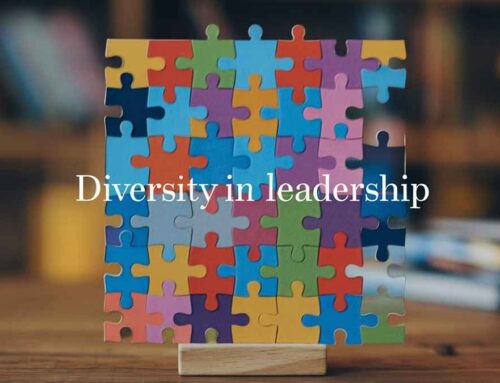
Mastering Modern Leadership
In today’s rapidly evolving world, leadership isn’t just about steering the ship – it’s about inspiring, motivating and nurturing a team through the turbulent waters of change. The landscape of leadership is continually shifting, adapting to the needs of a workforce that is more diverse, more connected and more ambitious than ever before.
But which leadership styles are at the forefront of this revolution and how effective are they in fostering success?
Join me as we dive deeply into modern leadership trends and uncover what makes them tick in today’s dynamic environment.
The Evolution of Leadership
Historically, leadership was often understood through a hierarchical lens. Command-and-control was the name of the game, characterized by top-down directives, rigid structuring and minimal employee input.
Today, however, this authoritarian approach is giving way to more inclusive, flexible and empathetic styles. Leadership trends now reflect a broader understanding of human motivation and the complexities of organizational life.
From Autocratic to Transformational
The shift from autocratic to transformational leadership marks one of the most significant trends in contemporary leadership theory. Transformational leaders inspire their teams with a vision and foster an environment of innovation and creativity.
Unlike autocratic leaders who rely on fear and authority, transformational leaders build relationships and motivate their teams through enthusiasm and genuine engagement.
Effectiveness: Transformational leadership has been shown to significantly improve employee satisfaction and productivity. According to a study by the Journal of Occupational and Organizational Psychology, transformational leadership practices result in higher levels of employee engagement, lower turnover and enhanced performance.
The reason for this effectiveness lies in the ability of transformational leaders to align the team’s values and goals with the organization’s mission, creating a shared sense of purpose.
Servant Leadership: Putting People First
At the heart of servant leadership is the idea that the leader exists to serve the team, not the other way around. Pioneered by Robert K. Greenleaf in the 1970s, servant leadership focuses on the growth and well-being of people and communities.
Leaders who adopt this style prioritize the needs of their team members, facilitate their development and encourage collaboration.
Effectiveness: The servant leadership style is particularly effective in fostering trust and a cooperative culture. It empowers employees to take ownership of their work and promotes a sense of loyalty and commitment to the organization.
Research published in the International Journal of Leadership Studies indicates that servant leadership is linked to increased job satisfaction, organizational commitment and operational efficiency – attributes crucial for long-term sustainability.
Agile Leadership: Embracing Change and Flexibility
With the rise of the tech industry and the increasing pace of innovation, agile leadership has become a crucial trend. Agile leaders value adaptability, quick decision-making and resilience.
They foster an environment where teams can pivot quickly in response to changing conditions without losing sight of their strategic goals.
Effectiveness: Agile leadership is particularly effective in industries characterized by rapid change and uncertainty. A survey by Deloitte found that organizations with agile leadership practices tend to have better market performance and are more capable of achieving growth during economic fluctuations.
Agile leaders build resilient teams that can navigate the challenges of a fast-paced business environment while maintaining a focus on continuous improvement.
Inclusive Leadership: Valuing Diversity and Inclusion
Inclusive leadership seeks to leverage diversity and ensure that all voices are heard within an organization.
Inclusive leaders are aware of their own biases, actively seek out diverse perspectives and create an environment where everyone feels valued and empowered to contribute.
Effectiveness: The business case for inclusive leadership is robust. Studies, such as the one conducted by McKinsey & Company, show that companies with diverse leadership teams are more likely to outperform their peers in terms of profitability and value creation.
Inclusive leadership fosters innovation, as diverse teams bring varied viewpoints and ideas, driving creative solutions and enhancing decision-making.
Modern Leadership Styles in Practice
Transformational Leadership in Tech Startups
Tech startups, often defined by their innovative spirit and dynamic environment, are prime grounds for transformational leadership.
Leaders in these settings are not just managers – they are visionaries who rally their teams around a common goal, fostering a culture of creativity and risk-taking.
Consider Elon Musk at SpaceX. His ability to inspire his team with a bold vision of space exploration has been a key driver behind the company’s groundbreaking achievements. Musk’s leadership style encourages a sense of mission, transforming ordinary employees into crusaders for innovation.
Servant Leadership in Healthcare
Healthcare organizations, which focus on caring for patients, find real alignment with servant leadership. Leaders in these settings emphasize empathy, support and the professional development of their staff, ensuring that patient care remains paramount.
Take, for instance, Mayo Clinic, where servant leadership principles are deeply embedded in the organizational culture. Leaders at Mayo Clinic prioritize the well-being and growth of their employees, recognizing that a satisfied and engaged workforce leads to better patient outcomes.
Agile Leadership in Financial Services
In the fast-paced world of financial services, agile leadership is essential. Leaders must be able to respond swiftly to market changes, regulatory shifts and technological advancements while maintaining a strategic focus.
A prime illustration of agile leadership in financial services can be seen at Goldman Sachs. The company continuously adapts its strategies to stay ahead in a volatile market, emphasizing flexibility and quick decision-making.
Leaders at Goldman Sachs empower their teams to experiment, rapidly iterate and implement new solutions, thereby maintaining a competitive edge in the industry.
Inclusive Leadership in Global Corporations
Global corporations, with their diverse workforces and expansive reach, benefit greatly from inclusive leadership. These leaders implement policies and practices that promote diversity and inclusion across all levels of the organization.
Procter & Gamble (P&G) serves as an exemplary case. Their commitment to inclusive leadership is evident through their numerous initiatives aimed at fostering a diverse and inclusive workplace.
By actively promoting gender equality, racial diversity and inclusion across global teams, P&G not only enhances employee satisfaction but also drives innovation and market success.
The Building Blocks of Effective Modern Leadership
While each leadership style has its unique attributes, effective modern leaders often combine elements from various approaches to suit their organizational needs and cultures. Let’s break down the core principles that underpin these modern leadership trends.
Vision and Inspiration
A clear and compelling vision is the hallmark of transformational leadership. Effective leaders articulate a vision that resonates with employees, providing direction and a sense of purpose. Inspiration is about more than just words – it’s about embodying the values and goals of the organization.
Empathy and Support
Empathy, a key element of servant leadership, is increasingly recognized as critical for effective leadership. Leaders who understand and respond to the emotional needs of their team members can build stronger relationships and trust. Support in professional development and personal well-being further solidifies this trust.
Flexibility and Adaptability
Agile leadership emphasizes the importance of flexibility in a rapidly changing world. Leaders who can adapt to new information, shift priorities and pivot strategies are better equipped to navigate the complexities of the modern business landscape.
Inclusivity and Equity
Inclusive leaders recognize the power of diverse perspectives and actively work to create environments where every team member feels valued and heard. Equity in opportunities, recognition and rewards ensures that all employees can thrive and contribute their best.
Continuous Learning and Growth
Effective leaders are lifelong learners who champion the growth and development of themselves and their teams. They seek out new experiences, welcome feedback and foster a culture of continuous improvement and innovation.
Tips for Implementing Modern Leadership Styles
To help you incorporate these modern leadership styles into your own organization, here are some actionable tips.
- Cultivate Self-Awareness: Regularly reflect on your leadership style and seek feedback from your team. Understanding your strengths and areas for improvement is the first step towards becoming a more effective leader.
- Build a Shared Vision: Clearly communicate your vision and align it with the values and goals of your team. Encourage input and buy-in from all levels to create a sense of ownership and purpose.
- Practice Empathy: Take the time to understand the needs and concerns of your team members. Show genuine interest in their well-being and provide support where needed.
- Encourage Innovation: Foster a culture where creativity and risk-taking are encouraged. Provide opportunities for team members to experiment with new ideas and learn from failures.
- Promote Diversity and Inclusion: Actively work to create a diverse and inclusive workplace. Implement policies that ensure equitable opportunities for all and celebrate the unique perspectives and contributions of each team member.
- Embrace Flexibility: Be open to change and willing to adapt your strategies as needed. Encourage a mindset of continuous improvement and resilience within your team.
- Invest in Development: Provide opportunities for professional growth and development. This could include training programs, mentorship or support for further education.
The Impact of Modern Leadership Styles on Organizational Success
The effectiveness of modern leadership styles isn’t just theoretical – it has tangible impacts on organizational success. Let’s explore some key areas where these leadership styles make a difference.
Employee Engagement and Retention
Employees today seek more than just a paycheck- they seek meaning, growth opportunities and a supportive work environment. Modern leadership styles, particularly transformational and servant leadership, fulfill these needs by aligning work with a greater purpose and investing in employee development. This leads to higher engagement levels and reduced turnover rates.
Innovation and Creativity
A company’s ability to innovate is directly linked to its leadership. Transformational and inclusive leadership styles foster an environment where creativity is encouraged and diverse ideas are valued. Agile leadership further enhances this by allowing for rapid iteration and adaptation, which is essential for innovation in fast-paced industries.
Organizational Agility
In a world where change is the only constant, organizational agility is a critical determinant of success. Agile leadership ensures that organizations can respond swiftly to market shifts, regulatory changes and technological advancements. This adaptability is crucial for maintaining competitiveness and achieving long-term sustainability.
Financial Performance
The correlation between modern leadership styles and financial performance is well-documented. Inclusive leadership, for instance, has been linked to better profitability and value creation as it leverages diverse perspectives to drive better decision-making. Transformational leadership enhances productivity and reduces costs associated with turnover, directly impacting the bottom line.
Challenges and Opportunities: Navigating the Future of Leadership
As promising as modern leadership styles are, they come with their own set of challenges. Leaders must navigate these challenges while leveraging opportunities to drive their organizations forward.
Balancing Vision with Reality
Transformational leaders must ensure that their visionary goals are realistic and achievable. Overly ambitious visions can lead to disillusionment and burnout if not grounded in practical steps and resource assessments.
Maintaining Empathy and Authority
While empathy is a cornerstone of servant leadership, leaders must also maintain their authority and ability to make tough decisions. Striking the right balance between being supportive and assertive is crucial for effective leadership.
Ensuring True Inclusivity
Inclusive leadership requires more than just policies – it demands a genuine commitment to equity and diversity. Leaders must continuously challenge their biases, seek out unconscious prejudices and work towards creating a truly inclusive culture.
Adapting Leadership Styles
In an ever-changing environment, leaders must be adaptable, blending different leadership styles as situations demand. This requires continuous learning, self-awareness and a willingness to evolve.
Conclusion: The Heart of Leadership
The future of leadership is undoubtedly about more than just steering the ship; it’s about empowering teams, fostering innovation and creating environments where everyone feels valued and can contribute their best. It is about thriving and not just surviving.
Modern leadership trends, with their focus on empathy, inclusivity, agility and inspirational vision, reflect a deeper understanding of what it means to lead effectively in the 21st century.
As we move forward, it’s essential for leaders at all levels to embrace these principles and incorporate them into their daily practices.
Whether you are leading a team in a tech startup, managing a department in a healthcare organization or guiding a global corporation, the core tenets of modern leadership can help you drive success and make a meaningful impact.
In closing, the heart of leadership lies not in power or control, but in the ability to inspire and uplift others. Leaders who embody empathy, adaptability, vision and inclusivity will not only achieve organizational success but also leave a lasting legacy of positive change.
As you continue on your leadership journey, remember that the most effective leaders are those who lead with the heart – guiding their teams with compassion, equity and a steadfast commitment to growth and innovation.














